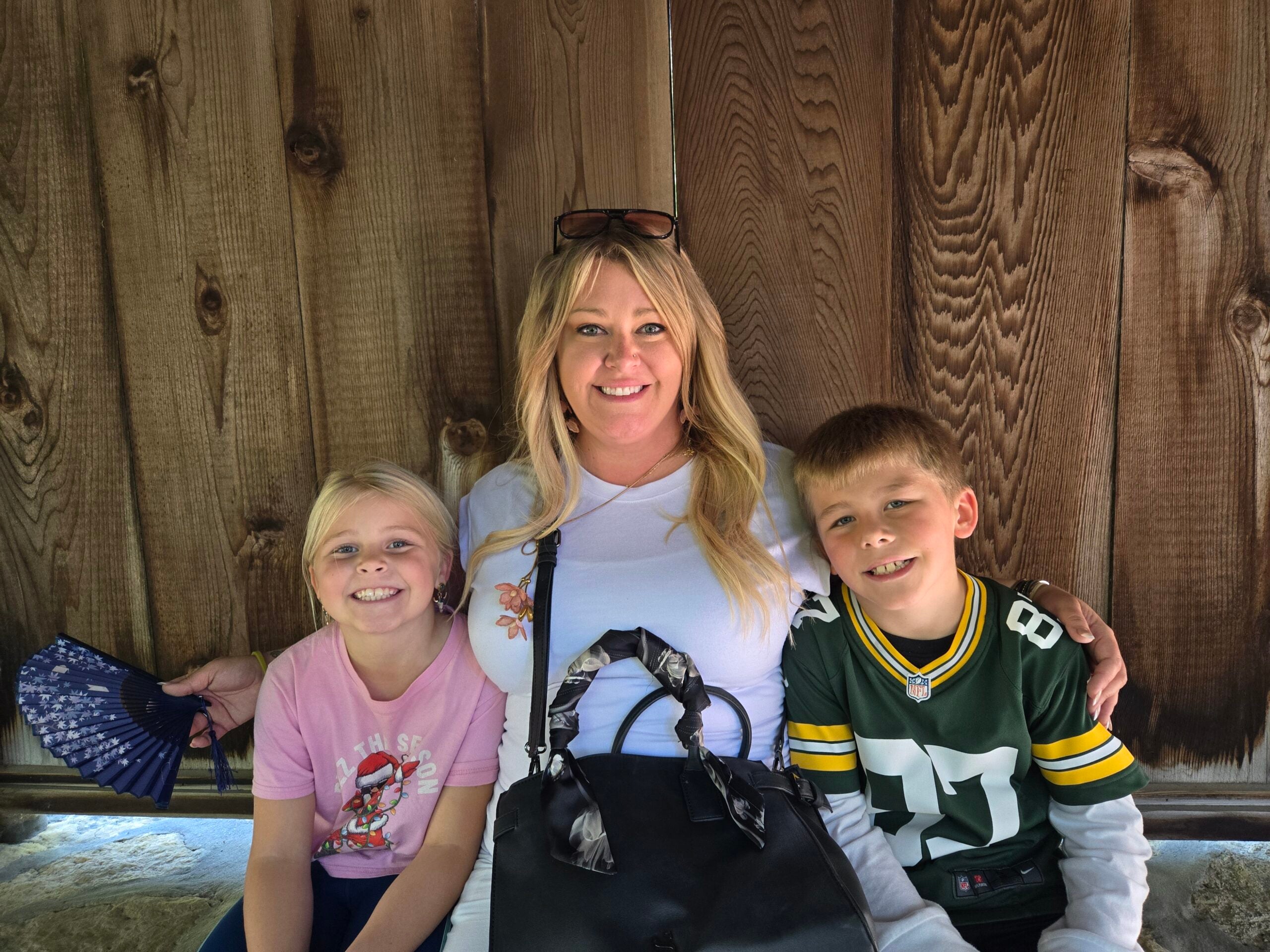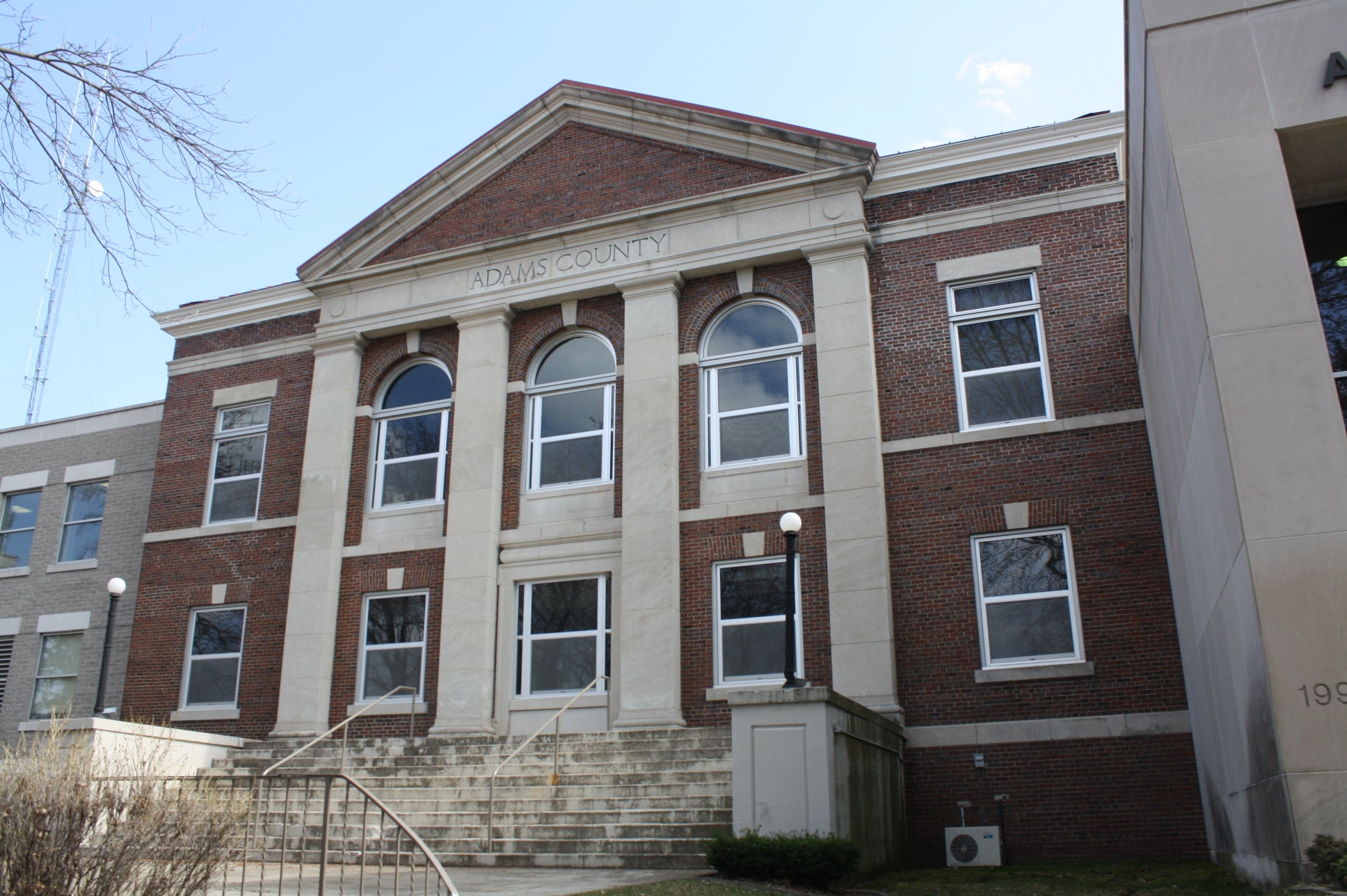A Republican state lawmaker unofficially won write-in campaigns for two Douglas County board seats Tuesday in an unusual election that featured four board races without any candidates on the ballot.
Initial results show state Rep. Angie Sapik, R-Lake Nebagamon, won both the 11th and 20th Douglas County Board District races.
Sapik was elected to the state Assembly in 2022 in a campaign that saw Democrats attack her for social media posts she made defending the Jan. 6 insurrection. In March, she announced she wouldn’t seek reelection because new legislative maps drawn by Gov. Tony Evers and passed by Republican lawmakers, including Sapik, make the new 73rd Assembly District overwhelmingly favorable to Democrats.
Douglas County Clerk Kaci Jo Lundgren told WPR that Sapik registered as a write-in candidate for the board’s 20th District seat, which she won with 76 votes. But Sapik also came out ahead in the county’s 11th District, with five write-in votes.
Sapik did not respond to interview requests from WPR.
Lundgren said Sapik doesn’t qualify for the 11th District because she doesn’t live there. The runner up in that race received two write-in votes.
News with a little more humanity
WPR’s “Wisconsin Today” newsletter keeps you connected to the state you love without feeling overwhelmed. No paywall. No agenda. No corporate filter.
“I am in talks with the (Wisconsin) Elections Commission to see the proper process as to what I do now,” Lundgren said. “I am uncertain if that goes to the next highest totaled individual, or if that seat then stays vacant, and we go through a hiring or appointment process.”
There was another unusual turn in the Douglas County election. Of the county’s 21 board seats up for election, four of them didn’t have any candidates for voters to choose from. Lundgren said it’s the first time she’s seen that in her 12 years working in the clerk’s office.
“There has been maybe one open seat here and there, and usually a registered write-in (candidate) does overtake that,” Lundgren said.
Without any candidates on the ballot, Lundgren said, all write-in votes are counted. She said the next step is to call those who got the most write-ins and ask if they actually want to serve on the county board. If they don’t, that could give rise to even more questions.
For example, in the election for the county’s Third District board seat, there were a total of 10 write-in votes. In the Sixth District, there were 23 write-ins. Lundgren said if the top two vote-getters in those races don’t want the job, it would set up a six-way and seven-way tie.
“So, I’m uncertain how a tiebreaker would work with those,” Lundgren said.
Why don’t people want to serve in local government?
The dearth of candidates in local elections isn’t unique to Douglas County. A Wisconsin Watch analysis found three districts out of Calumet County’s 21 board seats didn’t draw any candidates either. Similar situations happened in Shawano County, Winnebago County and Sheboygan County, along with the City of Shawano and the Village of Howards Grove.
Lundgren said she thinks people are shying away from politics in general.
“It’s under a lot of scrutiny,” Lundgren said. “A lot of people put government under fire for many different things, and I think some people just might be afraid to have to go in front of people and be subject to that scrutiny.”
Charlie Glazman, who has served on the Douglas County Board for 13 years, put it more bluntly.
“You see what’s going on in politics, and it’s just ugly,” Glazman said. “And why would you subject yourself to that?”
Glazman also points to demographics and said he wonders if the trend is generational.
“The county boards are made up of older residents, mainly because they have the time,” Glazman said. “And I understand that a young couple having kids has a lot of other responsibilities, so adding this to that is a real challenge.”
Glazman said he’s worked with the county board chair to recruit potential candidates, but it’s become more difficult.
“And going forward, it may even be tougher,” Lundgren said.
With fewer people interested in serving in local government, Lundgren said one potential option for counties is to shrink the size of their boards. But he said that would mean supervisors would have to represent more residents, which could make it harder to accurately reflect the will of the voters.
A state law passed in 2005 allows counties to reduce the number of seats they have through a citizen petition and referendum process. In 2007, a referendum that would have shrunk the Douglas County board to just seven districts was narrowly defeated by voters.
Wisconsin Public Radio, © Copyright 2025, Board of Regents of the University of Wisconsin System and Wisconsin Educational Communications Board.







